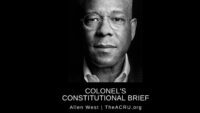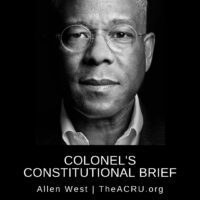Requiring voters to prove they are who they say they are in order to cast a ballot is a simple, common-sense measure that helps ensure honest elections.
Opponents of photo ID falsely charge that such requirements discriminate against poor and minority voters. Each time this claim has been used in the courts, plaintiffs have failed to produce evidence of any individual who was actually denied the right to vote for lack of a photo ID. Despite this fact, and that all demographic groups including African-Americans support voter ID laws, accusations of Jim Crow, the racist system that disenfranchised Southern blacks for generations, continue to be hurled with abandon.
The Supreme Court has stated that because voter ID is free, the inconveniences of going to the Bureau of Motor Vehicles, gathering applicable documents, or posing for a photograph are not substantial burdens on most voters’ right to vote. Nor do they represent a significant increase over the usual burdens of voting — registering or driving to a polling place. If people show up without an ID, they can cast a provisional ballot and bring in their ID later.
The Supreme Court found that the interests in requiring voter ID are unquestionably relevant in protecting the integrity and reliability of the electoral process as part of a nationwide effort to improve and modernize election procedures criticized as antiquated and inefficient.
In Crawford v. Marion County Election Board (2008), the Supreme Court also noted the particular interest in preventing voter fraud in response to the problem of voter registration rolls with a large number of names of persons who are either deceased or no longer live in Indiana. While the trial record contained no evidence that “in-person voter impersonation at polling places had actually occurred in Indiana, such fraud had occurred in other parts of the country, and Indiana’s own experience with voter fraud in a 2003 mayoral primary demonstrates a real risk that voter fraud could affect a close election’s outcome.”
The Supreme Court noted that there was no question that the state had a legitimate and important interest in counting only eligible voters’ ballots. Lastly the Court noted that the state interest in protecting public confidence in elections also has independent importance because such voter confidence encourages citizen participation in the democratic process.
Using a photo ID for voting is a central recommendation from the bipartisan Commission on Federal Election Reform, headed by former President Jimmy Carter and former Secretary of State James Baker. Here’s what the commission’s official report says:
“A good registration list will ensure that citizens are only registered in one place, but election officials still need to make sure that the person arriving at a polling site is the same one that is named on the registration list. In the old days and in small towns where everyone knows each other, voters did not need to identify themselves. But in the United States, where 40 million people move each year, and in urban areas where some people do not even know the people living in their own apartment building let alone their precinct, some form of identification is needed.”
“The electoral system cannot inspire public confidence if no safeguards exist to deter or detect fraud or to confirm the identity of voters. Photo IDs currently are needed to board a plane, enter federal buildings, and cash a check. Voting is equally important.”
ACTIVITY
Motor-Voter Law Often Lures Non-Citizens into Voting Illegally
The members of Congress of both parties who voted for the National Voter Registration Act of 1993 — Motor-Voter — are largely to blame for both noncitizen voting’s affront to American democracy and for the lives upended when noncitizens believing themselves eligible to vote have been caught voting illegally. Those congressmen enacted a fatally flawed NVRA that not only facilitates vote fraud but also results in legal aliens mistakenly voting and putting themselves at risk of jail or deportation, despite the legislation’s flaws being pointed out at the time.
Red County Election Integrity
If there is one dominant theme I hear in my travels in and around Dallas County, Texas, and indeed across America, it is this. Hey, Colonel, what are we going to do about election integrity? Colonel, how do we keep them, the progressive socialist left, from cheating? The answer is not that hard and is quite achievable.
Automatic Voter Registration Opens Door to Voter Fraud
Automatic voter registration is currently used in 23 states and the District of Columbia. Supporters say it simplifies the registration process and removes barriers to voting, but this is verifiably untrue, and there are many failures of automatic voter registration that make it a deeply flawed system.
National Voter Registration Day: Making Sure Voter Registrations and Voter Rolls Are Accurate
American men and women have fought and died on battlefields across the world to preserve and protect our constitutional republic’s freedom to vote. National Voter Registration Day is a vital reminder for us to highlight the proper perspectives on voter registration and celebrate accurate, transparent, and accountable voter registration and voter rolls.
Jason Snead: Don’t Listen To Dem Hysteria — Everyone Can Agree On Election Integrity
No matter what they claim or how loudly they claim it, these voices do not speak for the majority of Americans. As recent polling conducted by Honest Elections Project Action shows beyond all doubt, an overwhelming bipartisan majority of Americans embrace commonsense voting laws that make it easy to vote and hard to cheat.
Von Spakovsky: Another Study Refutes Left’s False Claims Against Secure Elections
Trust the science, we’ve all been told. Well, the science has spoken again: Voter ID laws aren’t discriminatory and don’t suppress anyone’s vote.
Walker County man convicted of voter fraud, sentenced to 25 years, DA says
A 62-year-old Walker County man is facing 25 years in prison after being convicted of voter fraud, according to District Attorney Chris Arnt.
Maricopa Mulligan
I do not think it is wrong to say the 2022 midterm election in Maricopa County, Arizona must be redone . . . in golf it is called a Mulligan. #MulliganInMaricopa
Voters Worry About Election Cheating, Don’t Trust Mail-In Voting
Most voters believe cheating may have influenced this year’s elections, and think voting by mail makes it easier to cheat.
We Need To Talk About What Didn’t Happen On Election Day
There are many crucial steps in our election process for the electorate to have confidence in the outcome. They didn’t happen last Tuesday.







